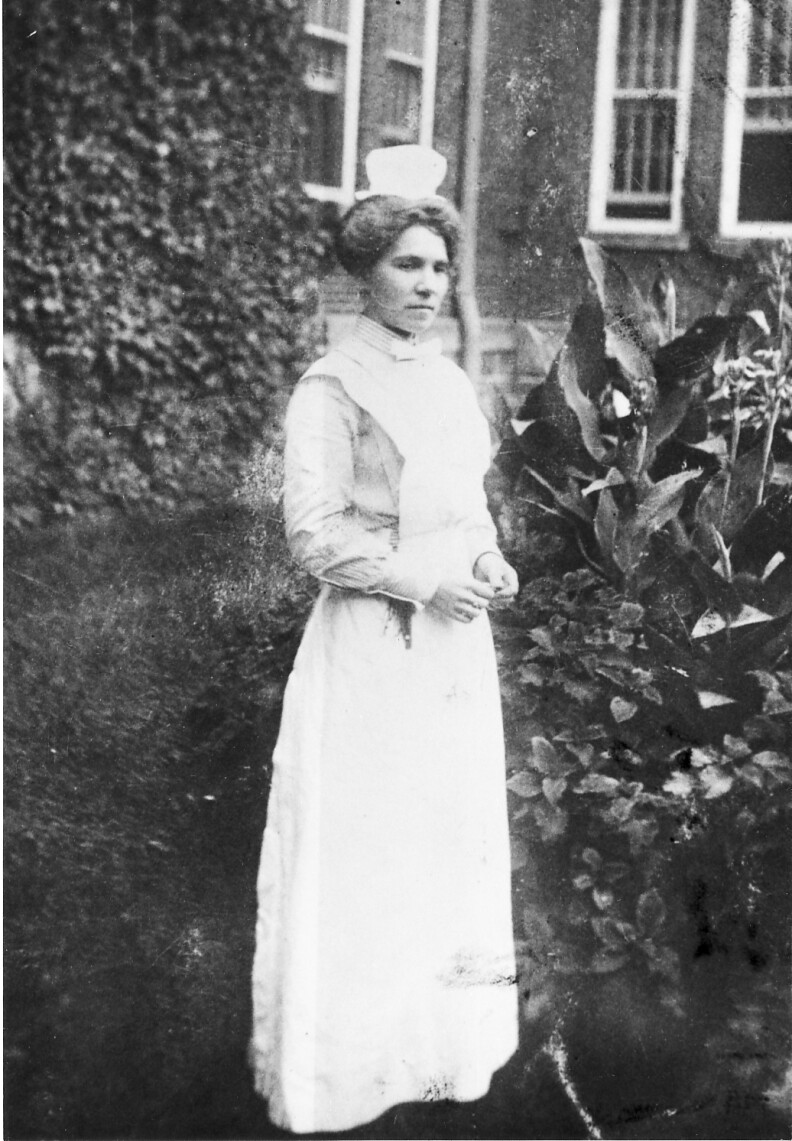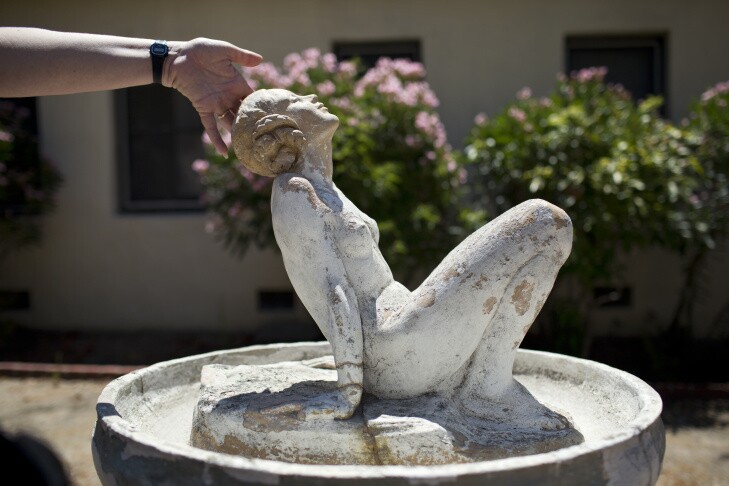Museum of mental health
Behind tall iron gates, the 3.4-acre site in Glendale that was once a mental health center run by women for women has been in disrepair for years.
Now, the city has it accepted plan — estimated to cost about $8 million — to turn part of the Rockhaven Sanitarium into a mental health museum.
The plans call for the renovation of part of the property known as Pines Cottage, built in 1931, to preserve its architecture, restore the surrounding grounds and beautify the landscape and make it a community gathering place. it.
Concept photos of the site show the rooms, many of them furnished with period-specific furniture, that tell the stories of the women who lived there.
“We want this place to live and work, and we want things that will attract people to come back again and again,” Glendale City Council member Dan Brotman said at Tuesday’s meeting.
Local conservationists said the City Council’s move is an important step in opening the site to public use and bringing the area’s history back into view.
But there are concerns that the plans will strip the buildings of architectural details and structure.

Unregistered historic photos of Rockhaven grounds
SWA Group Presentation
)
Mental health care
When it opened in the 1920s, Rockhaven was important for its time because it was its own and its own. run by women and providing comprehensive care for good causes.
Over the years, the facility hosted Hollywood models, including Billie Burke who played Glenda the Good Witch in The Wizard of Oz and Marilyn Monroe’s mother, Gladys Baker (also known as Gladys Monroe), who the tour guide called the sanitarium’s “most notorious resident.”
Glendale’s dream of turning the Rockhaven property into a mental health museum is getting closer to reality
“There were several times he tried to escape,” Joanna Linkchorst, president and co-founder of Friends of Rockhaven, told LAist in 2015. “He was able to get out a few times. One saw, he tied his sheets and escaped through a small window in his room.
The psychiatrist who founded Rockhaven, Agnes Richards, was an innovator when it came to mental health care, historians have shown. Richards was appalled by the conditions he saw while working at Patton National Hospital in San Bernardino and wanted to provide an alternative to the psychiatric “shelter” of the time when women were known to be they have been abused.

Founder of Rockhaven Sanitarium Agnes Richards.
Courtesy of Friends of Rockhaven
)
So he decided to do things differently.
Unlike some of the Gothic dormitories that dominated country hospitals at the time, Rockhaven had private houses, called The Willows and The Coulter, that opened to the outside. . Patients were encouraged to go outside and enjoy the oak trees and manicured rose gardens.
Eileen V. Wallis, a history professor at Cal Poly Pomona, said Richards worked to denigrate mental health conditions, referring to those in his care at Rockhaven as “women” and not “patients.”
Wallis, a Glendale resident who wrote a a book that examines the history of mental health care in Californiahe said Rockhaven was a safe place for its residents to live a healthy life. Focused on respectful, holistic care for women, Rockhaven patients gardened on the grounds and ate together in home-like settings.
“It was really compelling both in terms of being so different and different from what most mental health care looked like in the early 20th Century,” Wallis said. “But also being intentional and self-aware.”
He said it was disappointing to see the site closed to the public for so long.
A time capsule
The facility has been closed since the early 2000s. The saga of saving Rockhaven and reopening it to the public as a museum goes back more than a decade.
Linkchorst has been working for most of that time to save the site from demolition and neglect. After the public entered the site, Linkchorst led a tour of the site and its 15 buildings, bringing the story of Agnes Richards to life, pointing out architectural details and telling at least a few ghost stories.
There is a 1921 statue called “Reclining Nude” in the center of the Rockhaven property that has become a mascot for the area. This statue was created by one of the oldest manufacturers in California, McBean is delicious.
Linkchorst called the “Lady of Rockhaven”.

Queen of Rockhaven
He said he’s happy to see the city move toward opening the space to the public, but he worries that the approved plans will remove features like the colorful 1930s tiles and other unique features that, in his words, make , be “time. capsule.”
“I desperately want to touch this, because when it’s over, it’s over,” he said.
The Rockhurst area was it was listed on the National Register of Historic Places in 2016.
Ultimately, Linkchorst said, she hopes to bring young women back to the site for tourism. He said there are important lessons they can learn about mental health, and how people living with mental illness can be treated humanely.

Photos of Rockhaven as it is today.
“It’s difficult for a lot of people,” she said. strength and ability to deal with them.”
What’s next for Rockhaven
On Tuesday, the Glendale City Council unanimously approved plans to renovate what is known as The Pines into a museum building. The proposal directs city staff and architectural firm SWA Group to proceed with construction drawings and a bid package.

Pictures of SWA’s plans for the Pines field renovation.
The development comes nearly three years after Sen. Anthony Portantino received $8 million from the state to turn the property into a mental health museum. The city bought the property in 2008 for $8.25 million.
“Turning the grounds of Rockhaven into a museum dedicated to the legacy of Agnes Richards, women’s history, and telling the story of compassionate care for women with mental health issues ensures that we honor the importance the history of this place and the legacy of those who created it. Portantino said in 2021.
The project must be completed by March 2026 in order not to lose government funding.
What questions do you have about mental health in SoCal?
One of my goals in beating mental health is to make the seemingly impossible mental health system walkable.
#Museum #mental #health
